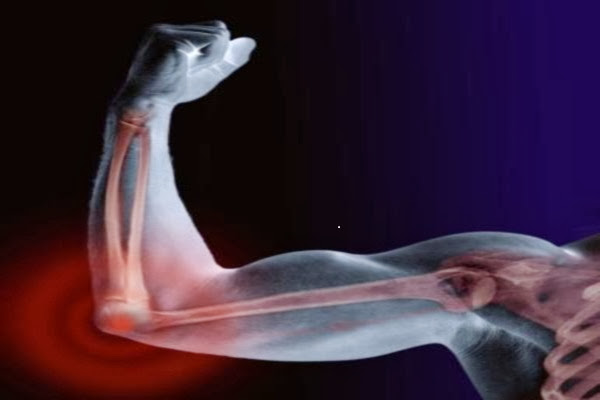Osteoporosis, the disease in which the bones of the body lose density and become porous, weak, and easily prone to fractures, affects over 200 million women worldwide. While not as prevalent, the disease also affects men. As the huge baby boomer population grows older, more and more Americans are vulnerable to osteoporosis, bone fractures, and increased medical care costs. Therefore, it is important that all Americans engage in cost-effective lifestyle and dietary adjustments to improve bone and joint health.
Bone is a living tissue, regenerating through a cycle of resorption and formation. During and even after menopause, bone resorption exceeds bone formation. This imbalance creates a loss of bone mass, to osteoporosis, a disease that causes bones to become fragile. Bone fragility increases the likelihood of fractures. Obviously, an increased occurrence of bone fracture equates with less mobility and a restricted quality of life.
The primary way to curb osteoporosis is to focus on building strong bones. While it is best to start early in life, even older adults can work to slow natural bone loss. The proper combination of exercise, diet, and specific behavioral changes can contribute to healthier bones and, by extension, a healthier life as you age.
Your bones rely on calcium for their health, so be sure to get enough calcium in your diet. Eat foods rich in calcium, such as yogurt, milk, spinach, and white beans. You can also take calcium supplements, but eating the right foods brings other nutrients into the body and is the preferred means for intake. It is also important to get enough vitamin D, which helps your body absorb calcium from the food you eat. Vitamin D produces in your skin when exposed to sunlight. You do not need to spend all day outside, though. Ten minutes of sunlight to the hands, arms, and face, two to three times a week, is sufficient to make enough vitamin D.
A healthy diet helps your whole body, including your skeletal system, so be sure to eat with an eye towards nutrient-rich foods. Additionally, you should avoid smoking and only drink alcohol in moderation. Being physically active helps your bones. Weight-bearing exercises are critical for improving bone-density; this work can include walking, running, weight lifting, yoga, tai chi, and any number of other activities.
If you think you have osteoporosis, your doctor may prescribe a test to determine your bone density. Once you hit 65 years of age, screening tests are important. At younger ages, your doctor considers your medical history, diet, alcohol consumption, and other factors to decide if a screening is necessary. Having more information is never a bad thing, so listen to your doctor and continue to learn about how you can slow bone loss as you age.
Woman today are likely to live longer than any previous generation, making them more susceptible to osteoporosis. In fact, a new report published by the International Osteoporosis Foundation (IOF) found that women may expect to live longer, but their quality of life suffers by failure to address their bone health. Given that women over the age of 50 play a critical role as caregivers and breadwinners within the family and society, their bone health is a priority to all of us. Together, we can provide the information necessary to ensure healthier lives for everyone.
This article was written by Tracey Miller. Tracey has written countless blogs concerning health care matters. She is dedicated to reaching the public with imporant information related to health. http://www.obgynofphoenix.com





